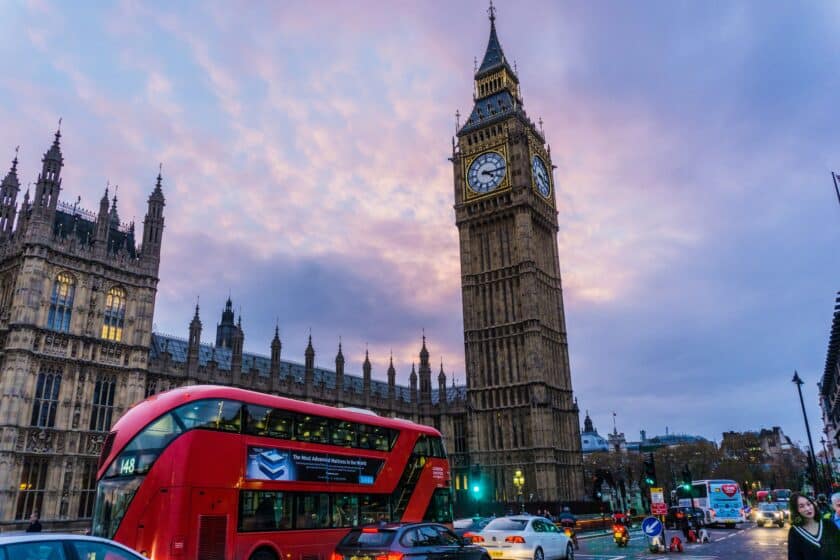Labour will form a new Government, having surpassed the requisite 236 seats needed to do so.
Predictions are that the party will have 408 seats in Parliament, having inflicted the worst defeat for the Conservative Party in its history, with the Tories predicted to have 136 seats at the end of the day. The Liberal Democrats have also made substantial gains at the Tories expense.
While Rishi Sunak held his seat in Richmond and Northallerton, 10 cabinet ministers have lost their places in Parliament, as well as 49-day Prime Minister Liz Truss. Former justice secretary Sir Robert Buckland described the Conservatives result as “electoral Armageddon”.
Markets having already priced in a Labour victory, and Labour have said there will be no emergency Budget, giving the Office of Budget Responsibility time to gather all the necessary data, ahead of an Autumn Statement.
The Labour manifesto laid out broad plans for the future and a few key changes that will impact people’s personal finances, but Laura Suter, director of personal finance at AJ Bell, said “there has been plenty of rumour, speculation and concern about the potential tax changes that Labour could bring in.”
Labour has said that it will not make changes to key taxes such as income tax, national insurance and VAT (with the exception of charging VAT on public school fees), and the state pension will continue to rise, with the triple lock retained, but two taxes that have been speculated could come under scrutiny are inheritance tax and capital gains tax, with both conspicuous by their absence from the party’s manifesto.
Gary Smith, partner in Financial Planning at wealth management firm Evelyn Partners, said while it was “unlikely” that even with its majority “the new Government will spring any policy surprises early in its office… the super-majority could at some point open policy doors that otherwise would remain closed. After all, Starmer’s Government would have to antagonize a huge number of the voters it has gained to hand back the 90 seats or more that would be required to lose its majority at the next election.”
He added: “Leading Labour figures have been keen to stress there are no tax-raising plans being nurtured in back rooms and it is only fair to take them at their word. But given the tendency for Government spending to overshoot and black holes to open up in the public finances, it’s inevitable that people are wondering how a Labour government might look to raise money without the biggest tax levers at its disposal.
“It is the middle years of the Parliament when Labour could push the policy boat out, as there’ll be time before the next election for the ripples to subside. Capital gains tax, inheritance tax and the tax-preferential treatment of pension saving have all featured in speculation around possible targets for a Government that needs to raise revenues down the line.”
Matt Evans, portfolio manager, UK Sustainable Equities, Ninety One, added: “Fiscal policy is set to show little change in the early days as Labour has consistently communicated there will be no major tax rises, no significant spending cuts and no slippage from current fiscal rules, all while boosting growth. This will be tough to achieve. The first budget could happen in mid-September, but it will more likely come after the Labour Party conference, sometime in October or November. Expectations are for a cautious start. The new government hopes growth will provide the flexibility to spend more over time.”
Liam O’Donnell, head of macro and rates at Artemis and co-manager of the Artemis Strategic Bond Fund, said: “The new government will enjoy the autonomy to implement the plan for change its manifesto heralded.
“However, the manifesto was relatively scant on details and bereft of significant promises of change to either investment, tax or fiscal trajectory. This could have been the strategy – to avoid making bold promises ahead of election day and just rely on the built-up frustration with the status quo to secure victory. Now, assured of a strong majority in power, Labour could be emboldened to announce further measures.
“The first Budget will be the real first test for the market. I believe Rachel Reeves and Sir Keir will focus on stability and not play fast and loose with public finances.”
Commenting on the landslide win for Labour, Lindsay James, investment strategist at Quilter Investors, said Labour now has “the precarious job … to govern a country that is experiencing difficult economic challenges that many in the population will expect to be fixed quickly.
“Businesses and investors have foreseen this result for some time and have been comfortable with the messages that have emanated from Labour. It will not want to upset the apple cart, although now it is in power it will be interesting to see how much they deviate.
“Labour has focused on economic growth being at the heart of everything they do. Boosting growth from its currently stagnant levels is going to be difficult to do given the tax and spending challenges facing the new government. Interest rate cuts are also not likely to be delivered at the pace that some in the party will like and as such Labour is inheriting a tough economic environment that has no easy quick fixes.
“And while the City is comfortable with a Labour government, it too will want to see substantial and concrete plans to reinvigorate the London market. Labour governments have not been considered natural allies in the past, but the demise of the London market will require it to give it some sort of stimulus, especially if it wants growth to return to the economy.”
Main image: lucas-davies-iP8ElEhqHeY-unsplash































